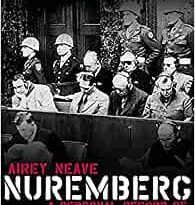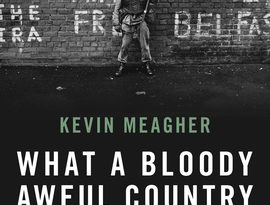BOOK REVIEW : Ten Years to Save the West by Liz Truss
It’s fair to say that Liz Truss had a difficult few weeks as Prime Minister. She’s not the only politician to have faced a troubled reputation, but the careful crafting together of a clever, thoughtful and penetrating auto-biography can change matters somewhat. Although Truss hasn’t written a full auto-biography, she has sought to address many of the issues which caused her trouble when in office.
Early on in the book, Truss addresses her thoughts about the Monarch dying, noting “why me, why now?” to hearing the news. This is an honest thing to recount, any individual would feel that this is unfortunate timing at best, although perhaps it needed more humility in general to balance what feels instead as quite a self-centred first few chapters. And that is the challenge here, writing a book which shows an understanding of what went wrong, but the writing style doesn’t burden itself with focusing on that.
Some passages are odd, the former Prime Minister writing “I have strong views about the bold changes required to ensure that freedom and democracy win”, but this is inevitably true of most those who seek to be elected to the House of Commons. There are few political figures who don’t have strong views about making changes to the current system. However, these appear to be views she genuinely holds, as later on she accuses David Cameron of “not being prepared to do the bold things that Britain needed”. She might have disagreed with his views and policies, but Cameron did oversee some substantial structural changes in many areas.
On justice, her views look towards the United States and she is unashamedly in support of their criminal justice system, writing “I looked enviously across the Atlantic where there were elected judges and prosecutors and a constitutionally appointed Supreme Court”. The attacks on others come thick and fast, “the sheer level of snobbery, the power of vested interests and the disdain for the democratically decided will of the British people, whether it was over Brexit or immigration, shocked me”.
There are some aspects where criticism seems to flow easily from Truss, condemning Sue Gray for hugging her after she received bad news and noting “I didn’t welcome her unsolicited embrace, but given how delicate I was feeling, she got off lightly”. It felt like a passage that didn’t need to be included in the book, a cheap attack on someone trying to be kind that could have been dealt with at the time. Truss then smashes into the “anti-growthers” in Cabinet, as if any Conservative Cabinet Minister was supportive of shrinking the economy. Instead of looking like a thoughtful and reflective former senior political figure, there’s almost a sneering attitude which is missing from the last several books written by former Prime Ministers.
Truss is better on Ukraine, perhaps because she can point her obvious anger at Putin, rather than directing it towards whatever civil servant or Cabinet colleague she could find. She seems to have accepted the view early on that Putin was a real threat to Ukraine in terms of a widespread military attack far more extensive than their previous occupation attempts, trying to get other countries to get behind her concerns. But, the approach that Truss takes is finding a common enemy and although it might play well on Ukraine, there is an argument that politics should bring people together and not divide them.
When Johnson was deposed, this led Truss to see her opportunity, although it was inevitable that she had some concerns. She wrote:
“My husband Hugh said it would be impossible to lead the party, given the level of infighting and nihilism demonstrated by the removal of Boris. The Conservatives were too divided to back any decisive course of action, he said. Even Hugh, who predicted it would all in tears, accepted that this was the moment I was expected to run and that if I didn’t, people would say that I had bottled it. Ian Sherwood, my political agent in my Norfolk constituency, also thought I should run – but he thought it would be for the best if I came second”.
Whereas other former Prime Ministers talk about the sense of wonder of Downing Street and the new life, Truss focuses on the negatives with some force. She notes that she couldn’t exercise and when her security would take her to Hyde Park or a private garden, she noted it was like “a prison exercise yard”. The former Prime Minister risks verging into Marie Antoinette territory, complaining that “I had to spend time organising my own hair and make-up appointments”. She’s not the first Prime Minister to have encountered issues such as this, it was made into a brilliantly written sketch in Yes, Prime Minister, but it sounds resentful rather than being a little annoyance amidst one of the most exciting opportunities possible to have for a politician.
On the Government’s economic policy, she said that after a meeting with Treasury officials, “there was no word of warning about any likely issues with the bond markets and no-one mentioned the issues surrounding liability-driven investments (LDIs)”. Startlingly, she also writes that “I had no confidence in the methodology I knew the OBR used and believed its modelling to be fundamentally flawed”. Truss, as a former Chief Secretary to the Treasury, simultaneously expresses an astounding lack of personal knowledge of LDIs, whilst also condemning the OBR who could have warned her of her economic model. Concerns were raised about LDIs, including by Simon Wolfson, at the very time she was the Chief Secretary.
Truss does address the LDI issue with her comment that “I hadn’t heard of LDIs and neither had most Treasury officials, one of the impacts or removing so much expertise from the Treasury and putting it into the Bank of England and OBR”. This does perhaps make matters worse, Truss had condemned in full flow the Bank of England and OBR, before recognising the knowledge base that would have saved her budget from failure was within those organisations. And as a failed budget, it was undeniable, rolled back by Truss herself it was an expensive mistake that required the Bank of England to dig Truss out of a hole. There is no depth of argument in the book about what happened, no finesse or structure, it’s a disappointingly empty explanation of the self-inflicted economic crisis.
In the final chapter, Truss comes up with some plans for the future based on her experiences. Anyone who has held the position of Prime Minister inevitably has a contribution to make and this is the area of the book where she could have detailed her strategic plan based on what she encountered. It was an opportunity to inspire, bring people together and look towards the future. The first point she made was, in capitals, “WE MUST BE CONSERVATIVES”. This apparently “means rejecting net zero zealotry and wokeism”, an easy culture wars argument that seems to be an important priority for Truss. What does it actually mean? She doesn’t say. Secondly, “WE MUST DISMANTLE THE LEFTIST STATE”, effectively saying that conservatives were too willing to accept institutional frameworks and that the people must be trusted more. Thirdly, “WE MUST RESTORE DEMOCRATIC ACCOUNTABILITY”. This includes “abolishing QUANGOs such as the OBR”. Liz Truss is clear that institutions such as the OBR are a real problem, so clear it’s mentioned perhaps more times than necessary, points are often laboured in the book, although that saves an explanation of the details.
Fourthly, “CONSERVATISM MUST WIN ACROSS THE FREE WORLD, PARTICULARLY IN THE UNITED STATES”. Not content with condemning institutions in the UK, she explains that this is a global problem. Fifthly, “WE MUST REASSERT THE NATION STATE”. Again, a complaint again about international institutions working together which she doesn’t feel have sufficient democratic accountability. Sixthly, “WE MUST END APPEASEMENT”. This is in reference to countries such as China, Russia and other threats to the nation state. All combined, it’s a surprising set of priorities, with effectively no mention made of public services or how to improve them, matters which many people might want to find more about.
Establishments must evolve and modernising and changing institutions is important, but much is in the detail rather than the generality. It would be very easy for an elector to say ‘there’s no point in politicians, none of them care’, but the reality is that the vast number of MPs do care a lot. Sweeping statements are dangerous, indeed rather than condemn the Bank of England with such glee, Truss could have come with challenging solutions for them to change.
The book is a very tough read, full of negativity and arguably limited self-awareness or solutions to tackle the problems in society. With broad sweeping strokes of how so many politicians or officials didn’t want growth, the book struggles to hit its mark. The Prime Minister who rolled back nearly the entirety of Liz Truss’s budget was Liz Truss, she sacked Kwarteng and then reversed the budget she said was essential. Truss does accept mistakes in the book, but it’s not clear exactly what those mistakes were and she once again apologises in broad sweeps. At times she launches attacks on institutions and individuals, whilst forgetting that she was the Prime Minister and could have changed any institution or over-ridden their decisions. In fairness, the book is accessible and easy to read, a title that can be completed in one sitting it does flow in a way that some other more stodgy biographies fail to achieve.
It could be suggested that friends of the former Prime Minister might have cautioned her not to write a book such as this. This isn’t because of the establishment and institutions that would want it to remain hidden, but instead because it explains why Liz Truss was ousted so quickly and that only one person is responsible for that. Few political memoirs miss the mark, there are some that show great humility such as those of John Major, Rory Stewart, David Cameron, Ken Clarke, Alan Johnson and Gordon Brown. Others go into considerable depth, more formal tomes such as those by Margaret Thatcher, Nigel Lawson, Tony Blair and Winston Churchill. Few seem to have failed to engage, perhaps only Edward Heath’s auto-biography equals this with its lack of self-reflection and awareness. This is a useful and interesting contribution, but it feels as though a more positive approach for the future could have transformed this title. Why was the book rushed out? It might be unkind to suggest that this was some positioning by Truss in preparation for what seemed at the time as a potential second term for Donald Trump, a President who she might have thought was in alignment to her and a way to justify her global big thinking.




